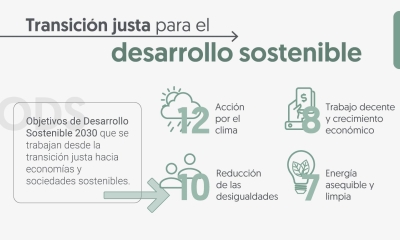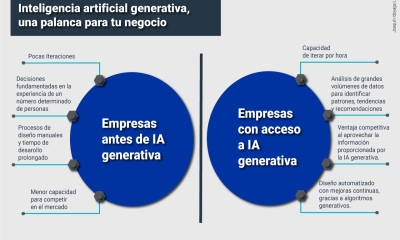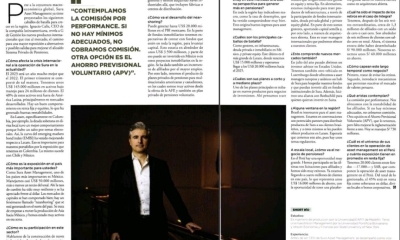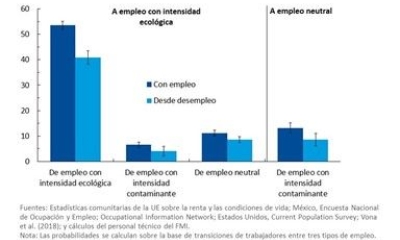In a continued effort to provide clients with the latest regional socio-political changes that affect financial markets, SURA Inversiones held the fourth event of their online seminar cycle, “Argentina: Current Affairs and Crisis”, reviewing the challenges facing the neighboring country as it deals with the coronavirus pandemic (COVID-19).
“Knowing the economic impact of the virus on the economy of one of Uruguay's main trading partners has a vital importance for our financial decisions,” said Gerardo Ameigenda, Vice President of SURA Asset Management Uruguay after welcoming attendees.
The activity was in the hands of Sergio Berensztein, the renowned Argentine Doctor of Political Science, who, in 2014, founded the political and strategic analysis consultancy firm that bears his name, and in which he dissects the political, economic and social variables that most influence the business climate, to understand the prospects of Argentina and the region, both in the short and medium term.
Berensztein began his presentation by explaining the current global context in the face of the coronavirus pandemic; he analyzed the ensuing political governance risks, with not only reinforcements of authoritarianism and weakening of leadership, but also uncertainty brought about by trade conflicts, including Sino-American tensions. Societies face the challenges of living under a so-called “new normality,” while “trying to predict the extent of the fall and the time it will take for economies to recover.”
Particularly in Latin America, he noted that “this new normal implies a new over-adaptation in many segments, in a setting where some countries possess the human capital and ability demanded for such an endeavor, while others do not. However, here it is important to consider that the new demands that are piling up should be addressed by societies that were not accumulating or that were in the process of challenging the status quo. This was happening even in countries deemed successful, such as Chile, where the riot flareups have been dampened since last October, but where social unrest remains dormant. This a dire warning for all of us, since this adds to the anti-capitalist and anti-globalization reactions that had also appeared in the most developed nations,” Berensztein argued.
In the case of Uruguay, his position was optimistic, and he praised the performance of Uruguayan President Luis Lacalle Pou, defining him as “the most legitimate and strongest leader today”. He went on to say that “he proved to be very skillful and capable of maintaining a flexible posture, of adapting to circumstances and always seeking an atmosphere suitable for greater coordination. With things as they are, Uruguay may play a very significant role, even redefining the characteristics of this new Mercosur.” He then added that, in the face of the strained relationship between presidents of Argentina and Brazil, “Uruguay and Paraguay will have to make an important diplomatic and political effort to mediate between them. This will be a great opportunity for the region, to strengthen the environment”, which will in turn “position Uruguay”.
He also noted that Argentina expects its Gross Domestic Product (GDP) to have a worse decline than in 2002: “We are thinking of double digits, around 15 points of the GDP, with a lot of unemployment and many companies ruined. It is an incredibly unique moment in the country, which of course presents many opportunities, because real assets, including Real Estate, are plummeting; their prices are very low, but all this drop in prices is due to the reigning uncertainty.”
On the other hand, to shed some light on the political and economic situation of the neighboring country, Berensztein went through some key indicators that affect the country’s responsiveness to this complex scenario. To illustrate this, he referred to the Global Competitiveness Ranking conducted by IMD, a Switzerland-based think tank that ranked Argentina 62th out of 63 countries, surpassing only Venezuela; in turn, Latin America appears as the worst classified region.
Furthermore, Berensztein presented the World Bank's 2018 Governance Indicators on six dimensions: Quality of Regulations, Corruption Control, Government Effectiveness, Political Stability, Rule of Law and Voice and Accountability.
“Uruguay ranks either first or second in almost all the Governance Indicators, while Argentina still has to improve several factors,” he pointed out.
The analyst also referred to the Uruguayan government's effort to attract investors, stating that its “governance is in the country’s favor, since it ranks first in almost all the indices related to the functioning of the democratic system,” and he commented that the number of Argentines that wish to live in Uruguay soared, and that “the Uruguayan Consulate in Buenos Aires has an eight-and-a-half-month waiting list”.
Finally, he described three potential scenarios of what can be expected to happen in the neighboring country, with favorable, intermediate and negative consequences. The best-case scenario would require a joint work between the ruling party (“officialism”) and the opposition to provide a coordinated and successful response to the health and economic crisis, and to reach an agreement with creditors that would permit the country to avoid default; despite being in recession for the third year in a row, this would enable Argentina to improve in 2021.
The intermediate scenario would also require coordination between officialism and opposition, but if we assume a suboptimal response, even if a successful debt swap is achieved, it would be overshadowed by the negative effects of COVID-19; or if we assume the debt swap fails, a deeper recession in 2020 would postpone the recovery until 2021 even with a successful control of the pandemic and of the economic context.
The least favorable scenario would result in a miscoordination of the political system, causing a collapse in governance, accentuating the effects of the disease, which in combination with the default would lead to a crisis with no precedents in the history of the country, with a recession in 2020 and 2021, and failing to recover the level of activity and consumption.
At the end there was a space for questions from the participants, and Ameigenda closed the event indicating that, despite some improvements, “it continues to be a challenging environment, and it is difficult to draw long-term conclusions. Therefore, it is crucial to be clear about the objectives in our industry and, if they were to change, it is crucial to have adequate information to support these changes; not doing so would increase risks unnecessarily.”











